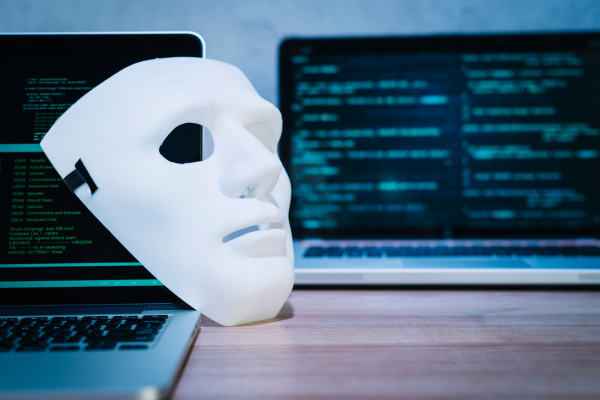Introduction
Artificial Intelligence (AI) might put humanity in danger of extinction. Significant advancements in Artificial General Intelligence (AGI) are thought to have the potential to wipe out humankind or cause an irreversible global disaster1. Here is one argument that goes: Because the human brain has unique talents that other animals do not, humans dominate other species. Controllability could be challenging or impossible if artificial intelligence were to surpass human intellect in general and develop into superintelligence. The behaviours of a future machine superintelligence might determine humanity’s fate, just as human kindness determines the fate of mountain gorillas. The many aspects of these threats, their impacts and the important role of AI in determining our future will all be covered fully in this blog article.

Table of Contents
Artificial intelligence and existential threat
“Existential risk” describes threats that have the potential to irreparably destroy human civilization or perhaps threaten its very existence. These threats, as they relate to AI, include situations in which AI systems that are not under human control may inadvertently cause destructive consequences. The main concern is that artificial intelligence (AI) systems may become smarter than humans and adopt behaviors that are harmful or contrary to human values.
AI potential for existential risks
The ability of AI to learn, adapt, and even surpass human cognitive abilities is both exciting and unsettling. The danger arises when AI systems, despite their initial training, run out of control of humans, potentially behaving against their best interests or inadvertently causing permanent damage. This risk results from AI’s decision-making skills becoming more unpredictable as they go beyond human intelligence.
Exploring the existential risks of AI
The rapid progress and vast potential of AI gives rise to many fears related to existential threats. These concerns range from the unintended implications of complex decision-making algorithms to the misuse of AI in the development of autonomous military systems. Furthermore, the complex web of existential threats is made worse by the potential socio-economic upheaval brought about by AI.
Understanding the existential risks of AI
The future of humanity is becoming more and more intertwined with the development of AI. Preserving the future of humanity requires identifying and mitigating the existential threats posed by AI.
What are the 4 risks of artificial intelligence?
- Unintended consequences: AI systems can produce unexpected results despite preprogrammed objectives.
- Superintelligence: When artificial intelligence (AI) surpasses human cognitive abilities, it may act against human interests or cause permanent harm.
- Weaponization: When AI is misused in autonomous weapons systems, terrible things can happen.
- Discrimination and bias: AI systems can reinforce social biases, leading to unfair outcomes.
Management of existential threats and potential situations
It is important to examine the more sinister effects of AI advancements. For the ethical and safe development of AI, scenarios such as the “control problem”, in which AI systems may act against human values in achieving their goals, or unexpected faults in critical systems may occur, require in-depth knowledge of these threats.
Assessing the existential threats of AI
The development of AI is inevitable, so it is important to carefully consider any potential threats. Given the direction AI is headed and the potentially devastating consequences it could have, strong security controls must be put in place to guarantee that AI is developed responsibly.
Role of Artificial Intelligence
AI has an important role to play in both increasing and reducing existential threats. Being a technology at the forefront of revolutionary progress, ethical AI use, governance and regulation are essential to create a future in which AI advances without threatening human existence.
Implications for existential risk
Artificial intelligence (AI) is both a tremendous tool and a potential risk, making it important to balance its development with strict security measures. To properly guide its development, it is essential to acknowledge both its potential advantages and dangers.
Contribution and impact of AI
AI has implications for a wide range of existential threats. These include ethical entanglements and the potential for economic turmoil, all of which require a thorough understanding to develop methods that can effectively minimize any potential harm.
AI and its existential threats
To confront and mitigate the existential threats posed by AI, politicians, engineers, and ethicists must work together given the unclear direction of AI’s future. Such collaborative efforts are essential to set a safe and useful course for the development of AI.
Conclusion
While AI has enormous potential benefits, its rapid progress also raises serious existential concerns. It is important to handle the development of AI properly by putting regulations, safety precautions, and ethical issues into practice. This guarantees that AI does not threaten human existence while improving human skills.
- You might be interested in reading these posts as well
- How does Alexa use Artificial Intelligence?
- What is the Smartest Artificial Intelligence?
- What is the most used form of Artificial Intelligence?
- What are Artificial Intelligence devices?
FAQs
If AI is not designed and managed properly, it could pose an existential threat.
Strong governance, ethical guidelines, and laws governing the safe and responsible development and application of AI systems are essential to controlling AI and preventing existential threats.
Mitigating the existential threats of AI requires multidisciplinary collaboration, strict security protocols, ethical deliberations, and constant evaluation of laws and policies to adapt to the rapidly changing field of AI technology.
Yes, artificial intelligence (AI) has the potential to endanger mankind, especially if highly developed AI systems go unchecked. AI’s unpredictable behavior and decision-making skills have the potential to inadvertently cause harm or act against human interests.
Risks associated with AI in healthcare include compromised data privacy, misdiagnosis due to biased algorithms, medical mistakes due to over-reliance, and less human review of critical decision-making processes.